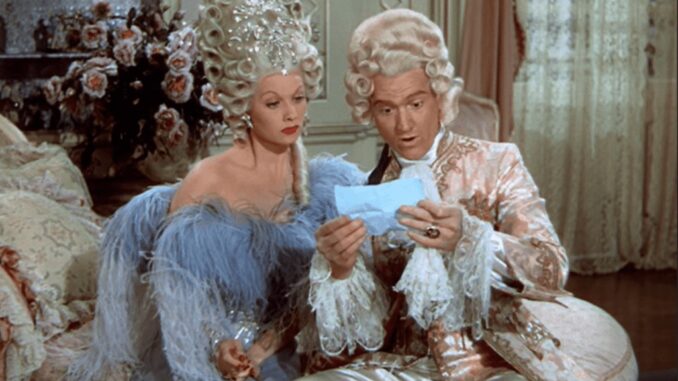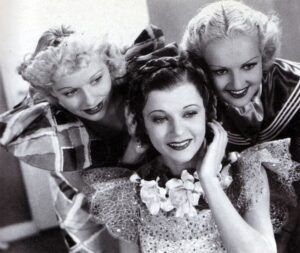
Introduction: From the Big Screen to TV Royalty
When you think of Lucille Ball, it’s hard not to picture her as the lovable, mischievous Lucy Ricardo in I Love Lucy. But before she became the queen of sitcoms, Lucille Ball was already making waves in Hollywood. Her journey to television fame didn’t happen overnight—it was built on a solid foundation of hard work, charm, and undeniable talent in classic films. Let’s dive into the fascinating story of how Lucille Ball’s early movie career paved the way for her legendary television success.
Lucille Ball: A Star in the Making
From Humble Beginnings to Hollywood Dreams
Born in Jamestown, New York, in 1911, Lucille Ball’s early life was anything but glamorous. Her family faced financial struggles, and tragedy struck when her father passed away. Despite these hardships, Lucille’s determination to make it big in show business never wavered.
Breaking Into the Entertainment Industry
Lucille moved to New York City in her late teens to pursue acting. She started as a model and eventually transitioned to Broadway. Her striking beauty and comedic timing caught the attention of Hollywood, and she signed with RKO Pictures in the 1930s.
Lucille Ball’s Classic Film Career
The Film That Made Lucille Ball a Star
Before she became a household name on television, Lucille Ball starred in several films. One of her most notable early roles was in Dance, Girl, Dance (1940), a drama-comedy directed by Dorothy Arzner. In this film, Lucille played Bubbles, a sassy burlesque dancer who exuded confidence and charisma. Her performance showcased her comedic timing and dramatic depth, setting her apart from her peers.
Why Dance, Girl, Dance Was Groundbreaking
This film wasn’t just another Hollywood flick—it was a bold commentary on gender roles and the struggles of women in the entertainment industry. Lucille’s portrayal of Bubbles was both empowering and entertaining, proving she was more than just a pretty face.
Collaborating with Hollywood Legends
Lucille worked alongside some of the biggest names in the industry, including Maureen O’Hara and Ralph Bellamy. These collaborations helped her refine her craft and build connections that would later serve her well in her career.

Lucille Ball’s Transition to Comedy
From Drama to Comedy: Finding Her Niche
While Lucille Ball shone in dramatic roles, it was her natural comedic talent that truly set her apart. She had an uncanny ability to make audiences laugh with her physical comedy and witty delivery.
The Road to Radio Stardom
Before dominating television, Lucille became a star on the radio show My Favorite Husband. This program was the precursor to I Love Lucy and showcased her knack for situational comedy.
How Lucille Ball Revolutionized Television
The Birth of ‘I Love Lucy’
Lucille’s film career laid the groundwork for her television success. She and her husband, Desi Arnaz, pitched the idea for I Love Lucy to CBS, but the network was initially hesitant. Lucille’s persistence paid off, and the show debuted in 1951, becoming an instant hit.
Why Lucille Ball’s Film Background Mattered
Her experience in classic films gave her the skills to command the screen, even in a new medium like television. The lessons she learned on movie sets—timing, expression, and audience connection—translated seamlessly to her sitcom performances.
Legacy of Lucille Ball’s Film Career
A Trailblazer for Women in Entertainment
Lucille Ball’s journey from the silver screen to television icon wasn’t just about personal success—it broke barriers for women in the industry. She proved that women could lead shows, produce content, and dominate in a male-dominated field.
Rediscovering Her Classic Films
Today, Lucille Ball’s films are celebrated for their charm and historical significance. They offer a glimpse into her evolution as an actress and her undeniable star power.
Conclusion: A Star Who Shined in Every Medium
Lucille Ball’s early film career was the stepping stone to her unparalleled television success. Her roles in classic films like Dance, Girl, Dance showcased her versatility and determination, proving she was destined for greatness. Before she was Lucy Ricardo, Lucille Ball was already a star—a force to be reckoned with in Hollywood.
FAQs
1. What was Lucille Ball’s most famous film role before I Love Lucy?
Lucille Ball’s standout film role before her television fame was in Dance, Girl, Dance (1940), where she played the confident and charismatic Bubbles.
2. How did Lucille Ball’s film career influence her TV success?
Her film career honed her acting skills, comedic timing, and on-screen presence, which became crucial for her success in I Love Lucy.
3. Did Lucille Ball always want to be a comedian?
Not initially. Lucille started in dramatic roles but discovered her natural talent for comedy later in her career.
4. Are Lucille Ball’s classic films still available to watch?
Yes, many of her films, including Dance, Girl, Dance, are available on streaming platforms and DVD collections.
5. What made Lucille Ball a trailblazer in entertainment?
Lucille Ball broke barriers as a woman in entertainment by becoming a leading actress, producer, and television pioneer, paving the way for future generations.